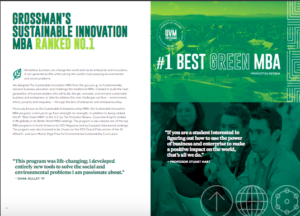This post was written by Alyssa Stankiewicz ’19, and co-written by Andrew Mallory ’19
EDITOR’S NOTE: A team of five students from The Sustainable Innovation MBA program recently took first place in the Wharton-sponsored Total Impact Portfolio Challenge, beating a field of finalists from Yale, Columbia, Fordham, and Boston University. Read more here.
When I came to this program in August 2018, I had never even heard the term “impact investing.” I planned to focus my learnings on innovations in social justice and sustainable agriculture. I dreamed of founding a self-sustaining weaving center that provided support and reflection to folks through art therapy. While this is still an eventual dream of mine (stay tuned!), I realized that what really motivated me about this dream was the opportunity to help people.
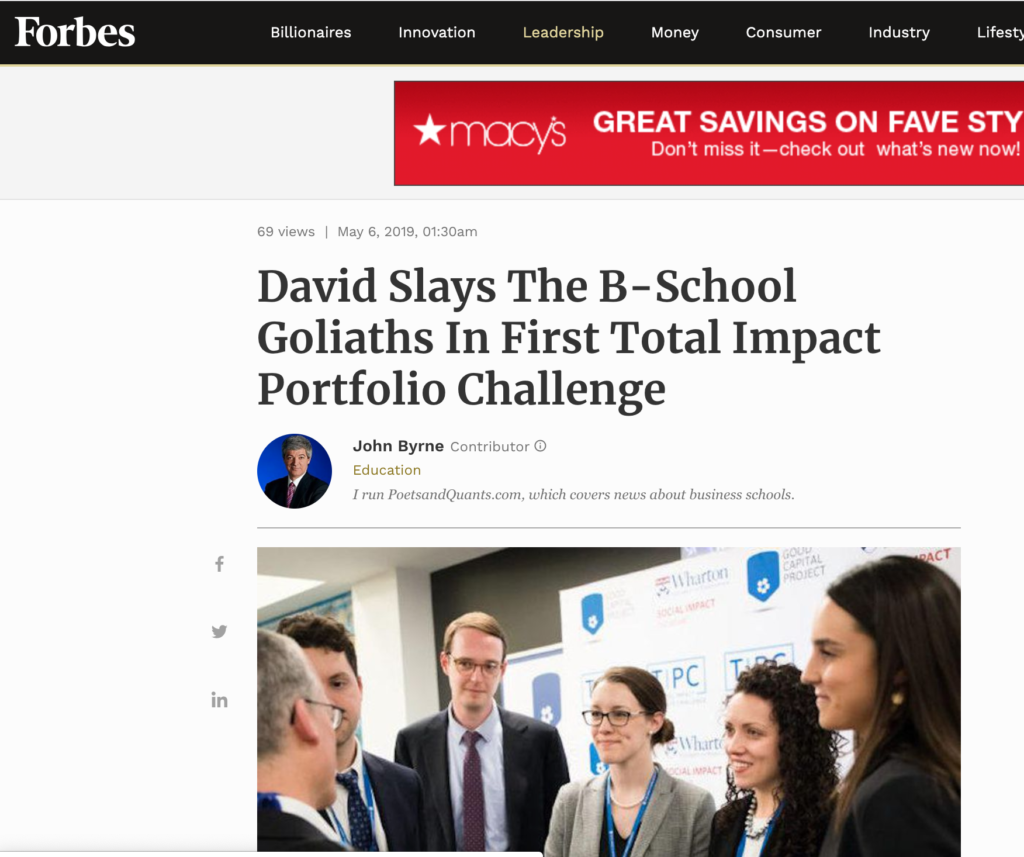
The mission of The Sustainable Innovation MBA program is using business as a force for good in the world, also described as “doing well by doing good.” Through the mentorship and encouragement I received from Dr. Chuck Schnitzlein, I began to realize that not only does the world of Finance provide this same opportunity, but I possess a natural knack for the work involved. He presented us with two extracurricular opportunities to test and demonstrate our skills and studies. The first project revolved around developing an impact strategy for the UVM Endowment (for more on that, see this article), and the second was a Wharton-sponsored impact investing competition called the Total Impact Portfolio Challenge.
The competition was stacked, to say the least. 26 teams from 19 business schools including Yale, Columbia, Booth (Chicago), and Wharton (Penn) entered the competition, and with this being just the 5th cohort of our Sustainable Innovation MBA program, our team was ecstatic to find out in March that we’d been selected as Finalists. We had spent months taking extra classes with Dr. Schnitzlein in Portfolio Management and Evaluation, researching the companies who achieved “best in class” accolades, and developing our investment philosophy and strategy in our copious free time (“copious” might be an exaggeration). When they announced we won at the live competition in Philadelphia on May 1, we were completely over the moon.
We like to think that we had a competitive advantage because each of our professors integrates sustainability holistically into every single course. We learned about Entrepreneurial Business Design, Systems Thinking, and Cost Models from a sustainability perspective, so we were more fully prepared to incorporate sustainability into every piece of our portfolio.
The Total Impact Portfolio Challenge provided us with two fictitious investor profiles from which to choose, and our team selected a Family Office who wanted to achieve multi-generational wealth and sustainable impact in line with five themes, which we matched to the UN Sustainable Development Goals (SDGs). Our team took a unique and bold approach: we successfully invested the entire portfolio in companies and funds that are going beyond minimizing the bad; instead, each of our investments contributes to developing solutions for the greater good. We highlighted the innovations of Mary Powell at Green Mountain Power and the Reinvestment Fund’s success in the City Mission Project. We developed methods for measuring impact and adapted our findings to the unique characteristics of the various asset classes. Peter Seltzer even coined the SI-MBA Score, which goes beyond traditional ESG scoring systems to incorporate materiality. This is because, as we learned in our Strategic Corporate Social Responsibility course (and which was affirmed in this study written by Khan, Serafeim, & Yoon), companies that focus on the sustainability issues that are most material to their business actually see improved financial performance over the long term.
Where do we go from here?
I personally want to find ways to help accredited and non-accredited investors deploy their finances in ways that are more meaningful to them. I have a passion for efforts to democratize investment opportunities, and I’m working on an idea that incorporates my Linguistics background with my Finance interests to create a more effective system for financial literacy education. I look forward to exploring opportunities in place-based investing and community funding models as avenues to strengthen the resilience of local economies. Find me on LinkedIn!
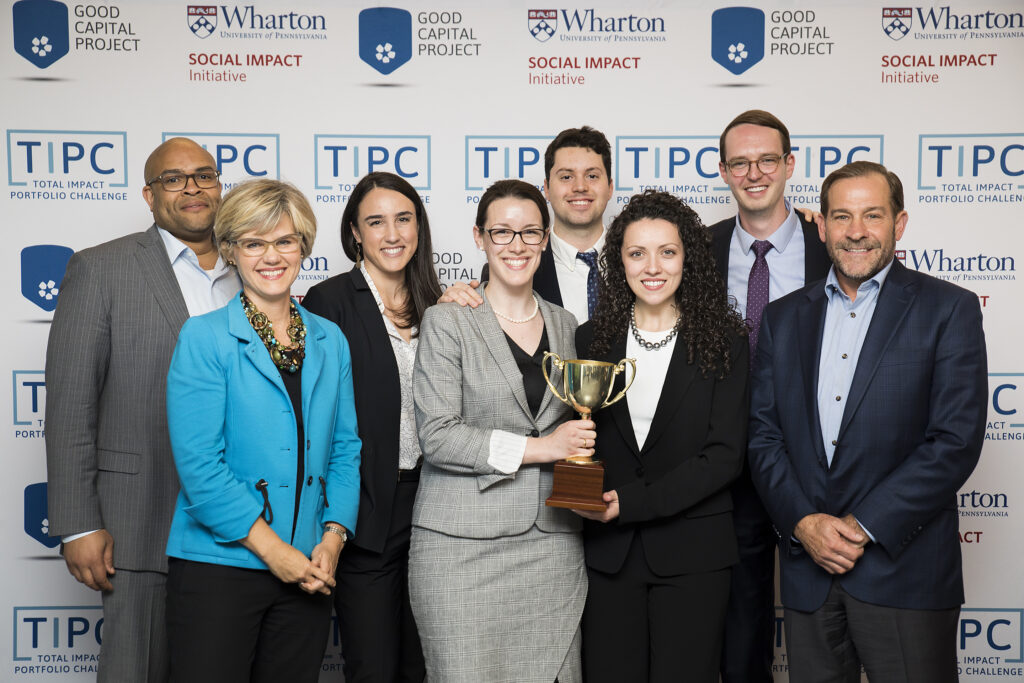
Emily came to The Sustainable Innovation MBA program passionate about opening up venture capital investment to women and other underrepresented founders. Through projects studying everything from community capital initiatives to equity crowdfunding policy to this challenge on integrating materiality into ESG scores, she sees increasing opportunities to promote a more sustainable form of capitalism for investors and entrepreneurs. After the program, she is seeking a career in impact investing and hopes her involvement can promote responsible investment opportunities in the industry.
For Andrew, this challenge was a perfect blend of his two professional passions: finance and sustainability. Coming from a traditional finance background, he sees how important it is for impact investing and ESG integration to continue to evolve and grow, and he is encouraged by how many financial institutions are now incorporating ESG into their strategies. After graduation, Andrew is interested in pursuing public and private equity research, specifically analyzing companies who are embedding sustainability initiatives into their core operations to see how impact alpha can mitigate risk and provide long-term growth.
Peter came to the program as a CPA with ten years of experience. Throughout his career, he has gravitated towards opportunities to support social causes, including serving on the boards of two non-profits and working for three years at The Food Trust, a Philadelphia based non-profit. While here, he discovered a passion for the Sustainable Accounting Standards Board (SASB) and began a certificate program in the fundamentals of sustainable accounting. The group utilized his research in developing the SI-MBA Score, which was a differentiating factor in our presentation. After graduation, he is pursuing opportunities where he can incorporate his SASB knowledge to help investors generate greater impact with their investments.
Maura, coming from the client services and business development side of the investment industry, saw the demand for responsible investment solutions from young investors and European clients. She hopes to use the skills developed during her SI-MBA experience and her involvement in the Total Impact Portfolio Challenge to re-enter the field and meet the needs and wants of the industry demand. Planting roots in Vermont, she looks forward to growing the responsible investing industry presence in the state.
We had great support from all of our classmates, but special acknowledgement (in no particular order) goes out to Andrew Oliveri, Alyssa Schuetz, Ryan Forman, Elissa Eggers, Caitlyn Kenney, Esteban Echeverría Fernández, Alexa Steiner, Emily Foster, Jeffrey Lue, Matt Iacobucci, and Keil Corey. In the spirit of The Sustainable Innovation MBA, this was truly a collaborative effort, and I believe that’s what ultimately gave us the competitive advantage. I’m personally looking forward to seeing where we go from here, and I wish good luck to next year’s cohort!
For other publications on this challenge and our approach, please see the initial post in the SI-MBA Review, as well as articles in CNBC, UVM, Poets & Quants, Forbes, and the Wharton Social Impact Initiative.

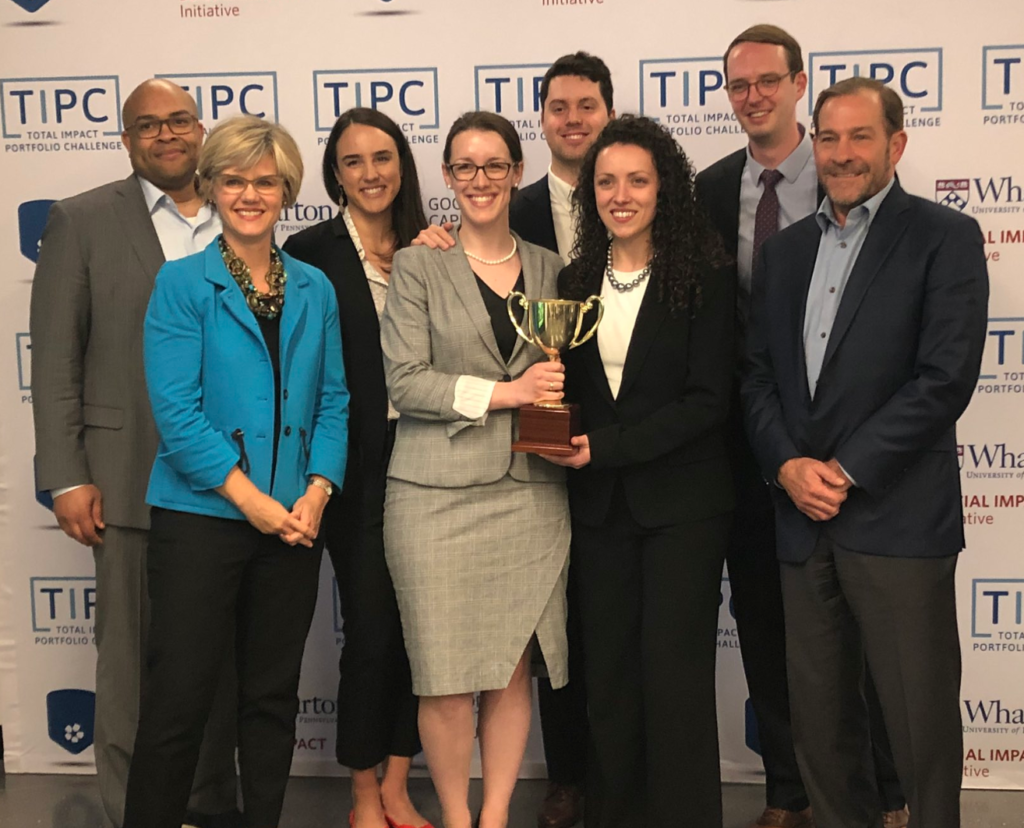
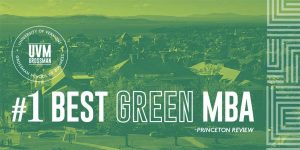 This is a significant recognition for the program and
This is a significant recognition for the program and 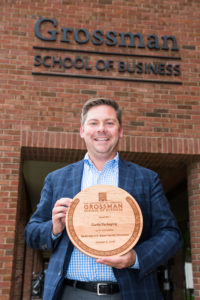
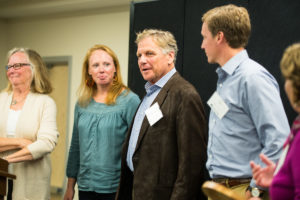
 The Tier I ranking by the London-based business publication places UVM’s Sustainable Innovation MBA among the top 116 programs worldwide. It was also listed among the top 71 Top Tier programs in North America, with both rankings focusing on programs that combine exceptional quality with great return on investment.
The Tier I ranking by the London-based business publication places UVM’s Sustainable Innovation MBA among the top 116 programs worldwide. It was also listed among the top 71 Top Tier programs in North America, with both rankings focusing on programs that combine exceptional quality with great return on investment.